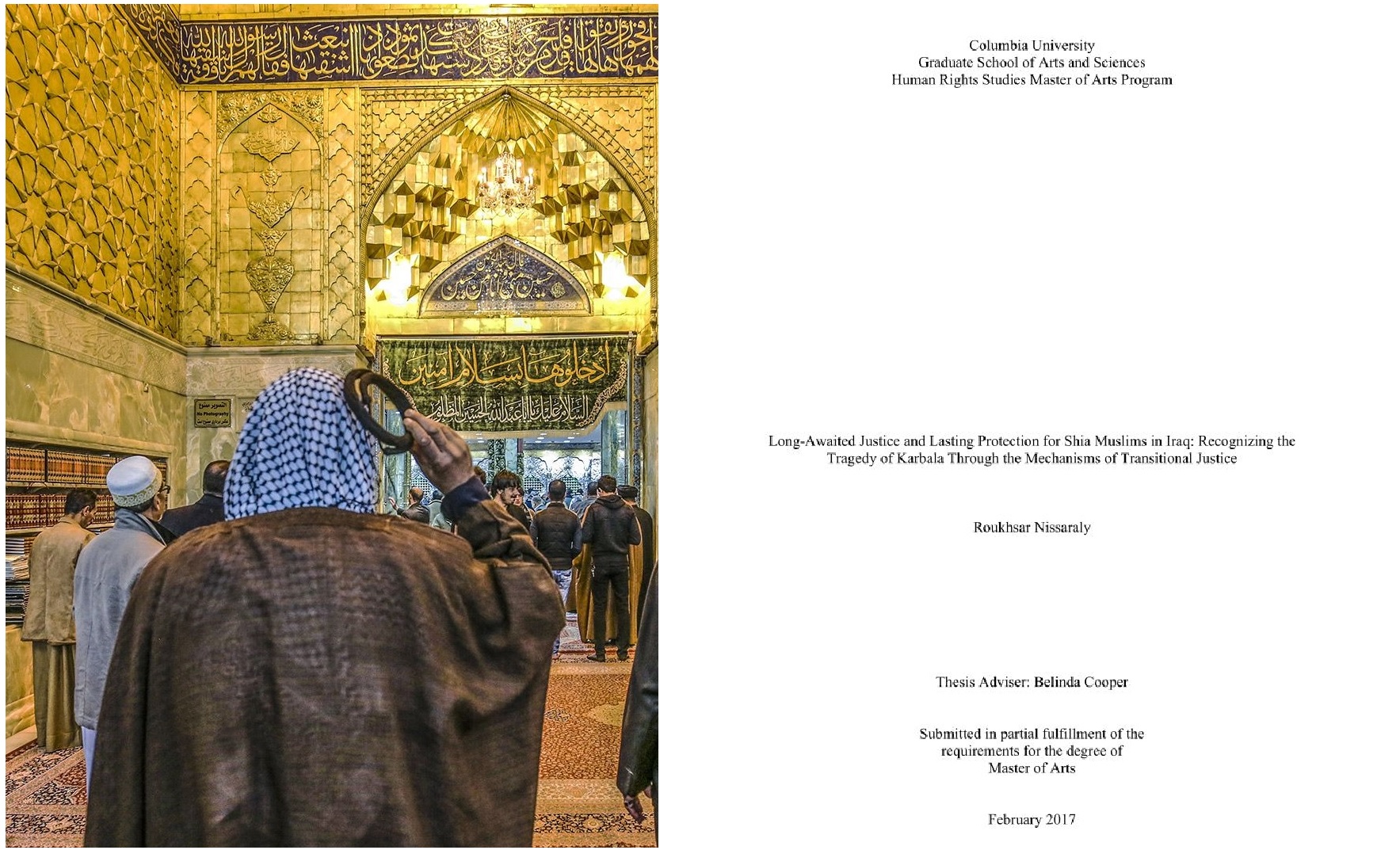Roukhsar Nissaraly
Columbia University, 2017
Since the beginning of its reign of terror in Iraq, the Islamic State has been targeting Shias and encouraging sectarian violence between Shias and Sunnis, based on past memories of violence and the instrumentalization of the Battle of Karbala, which is an ancient conflict that has become a part of Shia identity and ethos.
This thesis analyses the dynamics of Shia persecution in Iraq during the regimes of Saddam Hussein and the Islamic State, and shows that history has been present at the heart of this national conflict. It argues that addressing the historical roots of violence, which can be found in the Battle of Karbala, through the mechanisms of transitional justice, might be a way of encouraging reconciliation between Iraqi Shias and Sunnis, and help guarantee durable peace and nonoccurrence of violent outbreaks in the country.
This paper provides an analysis of the pertinent transitional justice theories and mechanisms, which include historical commissions and memorialization, and applies the theoretical framework to the case of Karbala by offering tentative suggestions regarding the workings of the process in Iraq, such as the creation of a shared historical narrative and the building of memorials.

